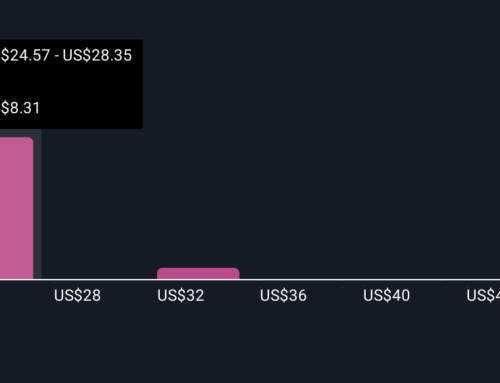Democrat Peter Hubbard brings energy expertise to Georgia PSC race
October 28, 2025
Peter Hubbard says he’s running for the Public Service Commission to “be the change he wants to see on the commission.”
An energy analyst, he’s spent much of his professional career examining how to make energy markets work better. He sees plenty of room to transition Georgia to cleaner, cheaper energy, but a lack of will among elected regulators to implement change.
A Democrat, Hubbard is running in the statewide race against Republican incumbent Fitz Johnson, who Gov. Brian Kemp appointed to the PSC in 2021. Johnson and Hubbard are competing for a special one-year term state lawmakers set up after an ultimately unsuccessful Voting Rights lawsuit upended the previously scheduled elections. The seat will be contested again next year to return it to its normal six-year term cycle.
Hubbard tried to influence the PSC from the outside, testifying in front of the five-member panel that regulates the rates charged and services provided by utilities, including Georgia Power. He’s published alternatives to Georgia Power’s long-range planning documents, called Integrated Resource Plans or IRPs, that the company presents to the five-member Public Service Commission for approval.
“That’s been falling on deaf ears,” he said at a candidate forum in Savannah in June.
Before testifying on the 2025 IRP in May, Hubbard simulated Georgia Power’s system using a computer model available from the federal National Renewable Energy Laboratory. He determined the system can accept the load growth from data centers and increasing population while lowering bills by embracing clean energy and requiring data centers to pay their “fair share.”
He spent $8,000 of his own money on the effort, mainly on an NREL consultant to check his work.
After he wrapped up a seven-minute presentation of his 24-page written testimony, commissioners asked him no questions about his findings.
Energy training and experience
Hubbard, who is from Tennessee, has lived in Atlanta for 10 years. He’s married and has two young children. He earned bachelors’ degrees in physics and mathematics from the University of Memphis then served in the U.S. Peace Corps in Morocco. While earning a master’s degree at Johns Hopkins School of Advanced International Studies he got curious about energy markets.
“I was there to study economics, but I just came to realize that energy is so fundamental to an economy that if you don’t understand energy, then you’re not going to understand an economy and how it runs,” he said.
Professionally, he’s spent 10 years in energy consulting, mainly with Pace Global, a Siemens business. More recently he’s been focused on building battery and storage projects with Ecoplexus Inc. In 2019 he founded a nonprofit, Georgia Center for Energy Solutions, to advocate “on behalf of residential electricity customers in Georgia, whom Georgia Power Company treats as a piggy bank …,” his LinkedIn profile indicates.
Hubbard ran in the 2022 Democratic primary for Georgia House District 90 as a “trial balloon,” finishing fourth in the five-person race.
Hubbard said he would bring needed energy expertise to a commission lacking it.
“These are intensely technical and detailed proceedings, and frankly, we’re outgunned by the deep pockets of Georgia Power Company,” he said. “They know how to manipulate the Integrated Resource Plan in particular. Remember that the Public Service Commission is very reactionary. They receive a plan from the monopoly utility, and then it has to be reviewed by staff that’s often understaffed.
“And I mean, that’s my secret weapon. As a consultant at Siemens Energy Business Advisory, I literally ran the very model the Georgia Power Company uses.”
That expertise caught the eye of the Southern Alliance for Clean Energy Action Fund, the political arm of the Southern Alliance for Clean Energy, which endorsed Hubbard.
“He understands how utilities work, how modeling comes together for them to make decisions, and he can identify where they’re putting their finger on the scale,” said SACE Action Fund executive director Stephen Smith during a recent online meet and greet for the candidate.
Michael Mount, an engineer and manager who worked with Hubbard for about nine years said their work included the kind of long-range planning for utilities that the Ga. PSC must review and approve.
“He’s great at analytical work,” Mount said. “He did a lot of forecasting work.”
It’s unusual to find a utility regulator with Hubbard’s background, but those he has known complement the sills of the lawyers and economic folks who often serve.
“His detailed understanding is going to help him a lot and help the people of Georgia a lot.”
Hubbard on solar, nuclear and data centers
Hubbard would like to see more solar in Georgia. That aligns with the opinions of most Georgians. In the 2024 Yale Climate Opinion Maps an estimated 69% of Georgians somewhat or strongly support the U.S. economy transition from fossil fuels to 100% clean energy by 2050.
“Right now we only generate about 7% of our energy (in Georgia) from solar,” Hubbard said. “There are many examples, Western Australia being one, where you can have a much higher percentage of solar on your system – that low cost, reliable and sustainable resource. I’d like to see us get to 30, 40, or 50% solar before we start thinking about some of the other more expensive resources.”
He calls himself practical and pragmatic about fossil fuels.
“I would very much like to see 100% renewable energy grid, but I don’t want to let the perfect be the enemy of the good,” he said. “Let’s try and get to 60, 70, 80% clean energy, and then we can worry about that more difficult, harder bit to get to 100% … With the technology as it exists today, there is still a small sliver of the grid that that where there is some benefit to having dispatchable fossil fuel infrastructure. So I’m not simply anti fossil, in the sense that I recognize that there is some benefit to it, but I’m deeply concerned that we’re not truly accounting for all of the costs of public health and to the climate of fossil fuel infrastructure. And when you put those costs into the system, you would have far less than we have now.”
Similarly, he’s not against nuclear energy, which operates without emitting climate-warming carbon, though he is critical of the burden the $35 billion expansion of Plant Vogtle placed on regular Georgians.
“There was a benefit to having those nuclear units come online,” he said. “I just wish the cost had not been borne by the rate payers. As it is, we paid for 15 years of construction work in progress, and the amortization of nuclear power is 60 to 80 years. We will be paying it off, and our grandchildren will be paying it off. So there’s a very high cost, and it’s not the lowest cost resource out there, even if it is carbon free.”
On data centers, a hot-button issue for voters, many of the concerns — including land and water use — fall outside the purview of the PSC. What the panel can control, Hubbard said, is how much data centers pay for electricity and the supporting infrastructure.
Hubbard said data centers get cheap electricity now. Data centers that use 100 megawatts or more pay 4.2 cents per kilowatt hour, while a Georgia Power Company residential customer pays 21 cents a kilowatt hour in the summertime, Hubbard said.
And while the PSC did create a rule earlier this year aimed putting guardrails on data centers, the details give Hubbard pause.
“When you look at that rule and read it, what it says is that the discretion to decide what is fair for a data center to pay, that lies with Georgia Power.”
We’ve linked places you can get more information about or from the candidate.
- Hubbard interview Local Matters podcast: https://www.youtube.com/watch?v=d8g8NdeUSSc
- Hubbard’s campaign website: https://peterforgeorgia.com/
- Facebook page: https://www.facebook.com/profile.php?id=100072996392605
This article appears in Georgia Public Service Commission election, candidates, 2025.
Search
RECENT PRESS RELEASES
Related Post



